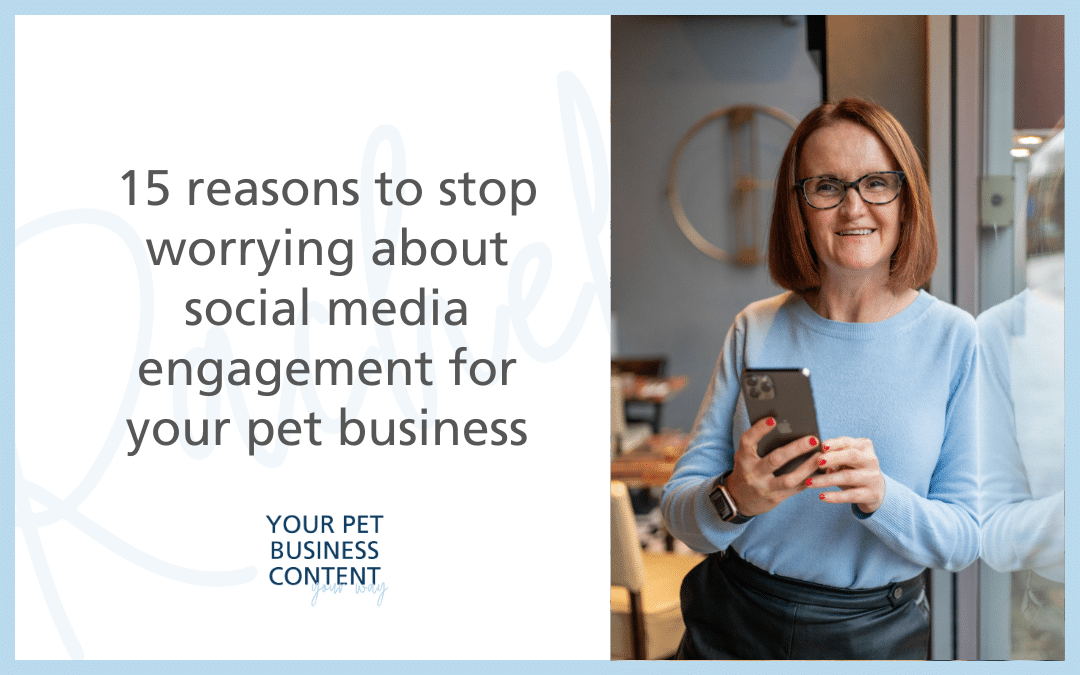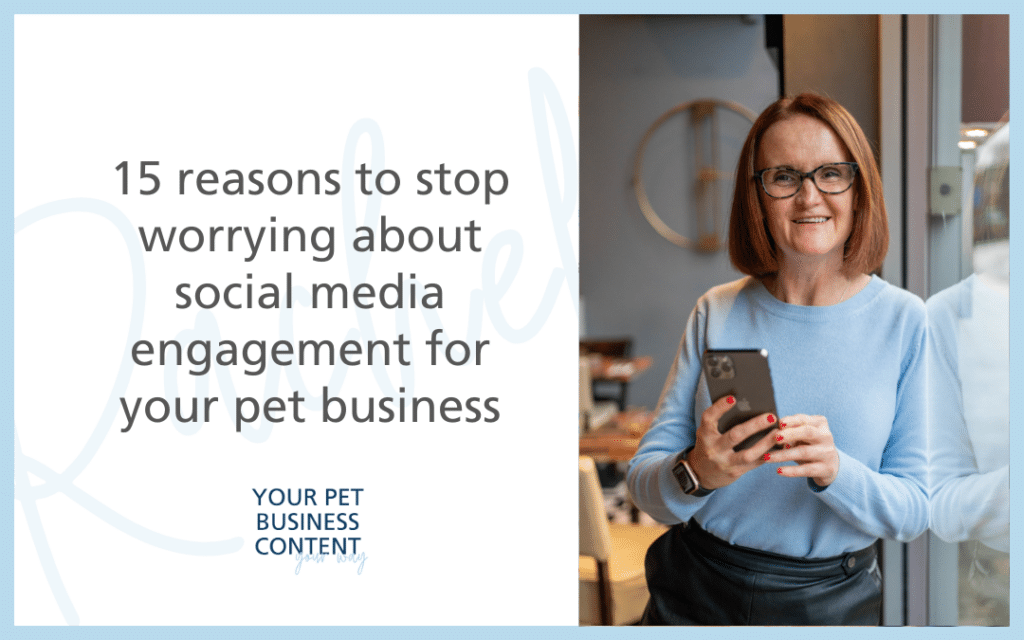Are you thinking about pitching to a journalist but worry about being rejected?
One of the hardest parts about putting yourself out there is the fear that you will be ignored.
You might think that you have a brilliant story idea but when you pitch it, you’re met with radio silence.
It can be demoralising, and it happens to everyone, so the key thing is not to let it derail you.
In this episode discover the reasons why your pitch might be ignored and the steps to follow to avoid this in the future.
You can listen in on the player link or read as a blog post below.
Reasons why your pitch might be ignored
It’s not suitable for the publication
Some publications just may not cover pet stories, for example, business magazines.
Meanwhile a lifestyle magazine might bite your hand off for your story, so make sure you research the publication first.
Recently, I was in a conversation on Twitter with a journalist who revealed they had a total ban on pet stories in their local paper.
This is unusual, but it can happen, so don’t let it get you down if that’s the case.
It’s not of interest for their readers
Let’s say you’re pitching to a family magazine but their focus is around things to do with the kids.
Yes, many families have pets but if this isn’t what their readers expect when they read the magazine then it’s most likely you’ll get a no.
It’s not a strong enough story
If you’ve been ignored and you’re convinced that a reporter should have jumped at the chance of running your story, do the ‘why would anyone care’ test.
This is where you run the story by someone who isn’t remotely interested in you or what you do to see if they would care.
If you get a ‘no’ then chances are it just wasn’t a strong enough story.
Or, if you pitched to a freelance, if they said no or didn’t come back, it might be the case that it isn’t strong enough for them to ‘sell in.’
Freelancers get stories and pitch them to editors, and are paid on publication. But here in the UK they are generally only paid if the story goes in a larger publication.
In the case of pitching to a freelance, your story might be good enough for your local paper, but not for a national, and this could be the reason why you don’t hear back.
The reporter isn’t working there at the moment
One of the things I’ve noticed in lockdown is that people have been e mailing contacts and not hearing back.
When they’ve called the office, they’ve learned the person has been furloughed, so unlikely to be checking e mail.
So always double check if you think you’ve sent over an ideal story as the reporter you’ve e mailed may not even be there.
They’ve recently covered a similar story
If they’ve just covered your topic, you may not get a response. If this is the case and you’re sure you have a decent idea, can you change the angle?
This might mean you’re more likely to get a yes. For example, Kerry Lawson had an idea about separation anxiety in dogs post lockdown.
This had been covered a lot, so we switched the idea to how to settle dogs into an office and she featured on local radio and in a national newspaper.
If you have a story and go to put it out and realise it’d been covered recently, I have an entire podcast on what you can do on this topic.
You can listen in here: What to do if your story has just been covered
What to do when your pitch or press release isn’t picked up
If your pitch or idea hasn’t been picked up don’t panic, here is what you can do next.
Follow up
It’s ok to send one or two e mails to follow up and see if it’s of interest. If you don’t get a response, assume it’s not.
Most journalists prefer to be contacted by e mail rather than phone, and it can be awkward when you have to say no to a story on a phone call.
GingerComms asked 200 journalists how they prefer to be contacted and 89 per cent said they preferred e mail – you can read the study here:
The biggest pitching mistakes PRs make
Look for another hook
Start from the beginning and write it again. Put your key points down. Can you improve it or make it more topical?
Does it link to a date in the diary, an event in the news or an awareness day?
A freshen up might make a difference.
Try the next outlet on your list
If you took part in my recent PR challenge, one task was to find five outlets to pitch to.
This means if one says no, you move to the next one on the list, and this improves your chance of placing your story.
For more on this topic, you might like to read this post:
Five local media outlets you can pitch to
Not right ‘right now’ doesn’t mean not right forever
Some reporters keep things in their inbox to refer back to.
I have loads of flagged e mails which either weren’t quite there or contained a line or some data that I thought might be handy to keep.
I will go back to them and have used press releases that had sat there for weeks and even months.
Repurpose the content and use it yourself
Before lockdown, I was working with dog trainer Claire Lawrence and there was talk of self isolation and us facing not being able to walk our dogs.
Claire works with owners of barking and reactive dogs and knew this would be a concern so she pitched a few places with tips on how to help them and didn’t hear back.
So on March 4th, nearly three weeks before lockdown, she put it on her own website and social media and it got shared hundreds of times.
She had journalists from three local BBC radio stations call and interview her. So if you believe in your idea, publish it yourself.
Here’s Claire’s post: How to cope with your dog in self isolation

Don’t take it personally
Don’t think that the reporter will hate you or find you annoying, they won’t, they will just be busy on whatever story they’re working on.
It can be easy to take things personally but if getting coverage is something you’re keen to work on, then there will be knock backs.
You’ll have stories you didn’t rate that people will love and vice versa.
So pick yourself up and move on to the next one.
If you’d like tips delivered to your inbox each week and to know when there’s a new podcast episode out click here to sign up.
If you found this podcast helpful, you might like to listen to:









